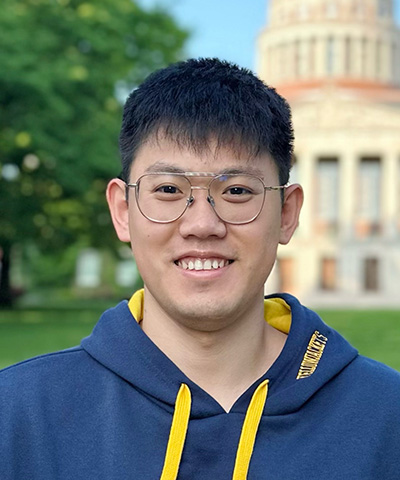Human-Computer Interaction
Human-Computer Interaction (HCI) is concerned with the study, design, construction and implementation of human-centric interactive computer systems. Work in the Rochester HCI group (ROCHI) includes human nonverbal behavior analysis, social skills training, applied machine learning, educational technology, accessible computing, ubiquitous computing. Visit the HCI website.

Bai, Zhen
Biggar Family Fellow in Data Science, Goergen Institute for Data Science and Artificial Intelligence
Assistant Professor of Computer Science
- Office Location
- 3007 Wegmans Hall
- Telephone
- (585) 275-7758
- Web Address
- Website
Interests: Human-Computer Interaction; Augmented Reality; Tangible User Interfaces; Embodied Conversational Agent; Technology-Enhanced Learning; Computer-Supported Collaborative Work; Assistive Technology; Machine Learning for HCI

Hoque, Ehsan
Professor of Computer Science
- Office Location
- 3013 Wegmans Hall
- Telephone
- (585) 275-1351
- Web Address
- Website
Interests: Human Computer Interaction; Artificial Intelligence ; Interactive machine learning; Health and wellbeing; Future of skills

Yan, Yukang
Assistant Professor of Computer Science
- Office Location
- 3103 Wegmans Hall
- Web Address
- Website
Interests: Human-Computer Interaction; Human Behavior Modeling; Virtual/Augmented Reality

Zhu, Yuhao
Associate Professor of Computer Science
- Office Location
- 3501 Wegmans Hall
- yzhu@rochester.edu
- Web Address
- Website
Interests: Computer Systems and Architecture; Computer Imaging and Graphics; Augmented/Virtual Reality; Human (Visual) Perception and Cognition; Computational Art, Art History, and Aesthetics
